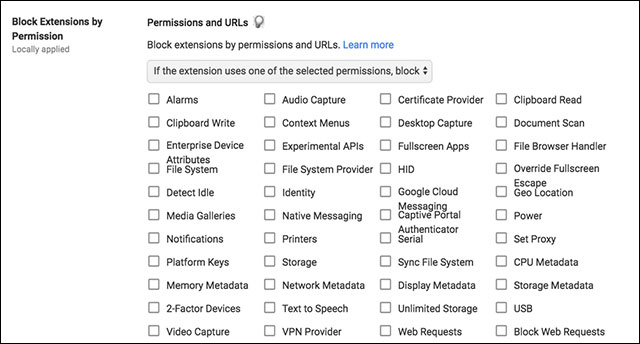Chrome 63 protects from malicious pages better, will also consume more memory
To attract more in the eyes of businesses, Chrome 63 - the latest Stable version of Google Chrome browser - brings higher security capabilities, towards the enterprise market.
The first is the ability to 'isolate pages', the more rigorous version of the multi-process model that Chrome uses from the beginning, for the purpose of security and stability when using the browser. In terms of stability, even if a tab crashes, the other tabs (and the browser) are still unaffected. In terms of security, using multiple processes to help malicious code on this site is difficult to steal information from other sites.
Chrome's default model is to use a process on a tab. This more or less ensures that irrelevant pages will be in different processes, but there are also inconveniences here. Pages share a process if they are related, such as opening JavaScript or each other's embedded iframe (where a page is considered to be the content of another page).
In a browsing session, a tab is used to access multiple domains, all of which can be opened in a process. In addition, if too many processes are running, Chrome will start opening a new page within the current process, resulting in the sharing of processes between unrelated pages.
Chrome 63 introduced a new mode called 'site isolation'. In this mode, this type of sharing is eliminated, the browser will be more rigorous to ensure that individual pages are in separate processes. Even previously considered relevant pages (ie allowed to share the process) will be separated and a tabbed browsing session over multiple pages will create new processes every time you access a new domain. . Sharing due to too many processes is also removed when using this mode.
See also: Google removed Chrome Apps from Chrome Web Store, prepared to say goodbye
Google just has to update Chrome to turn it on. One reason for sharing is that some pages are allowed to communicate with another site, using JavaScript. Initially, this mechanism only works when different pages use the same process. In Chrome 63, communication can occur between processes. Similarly, embedded iframe can use another process.
Understandably, using multiple processes also has its price because then Chrome memory will consume 15 to 20% more. Therefore, it is not enabled by default, but is aimed at business users, especially with regard to security.
Another new feature on Chrome 63 is that it allows administrators to block extensions based on features. For example, block utility trying to use file system access to read, write clipboard or try to use webcam, microphone .

Chrome 63 can block utilities by feature
In addition, Google also started developing TLS 1.3, the latest version of Transport Layer Security, a secure communication protocol between browser and web server. On Chrome 63, this feature is only used when communicating between Chrome and Gmail, until 2018 will expand.
See also: Embarrassingly, Microsoft engineers had to install Google Chrome in the middle of the presentation because Edge kept crashing constantly
You should read it
- ★ The security feature prevents the Specter vulnerability, which makes Chrome account for 10-13% more computer RAM
- ★ Google launched Chrome 33, patched 7 new security bugs
- ★ Released Google Chrome 66, focusing on security
- ★ Warning: Google Chrome is experiencing serious security errors, patch updates right away
- ★ Google will release weekly security updates for Chrome